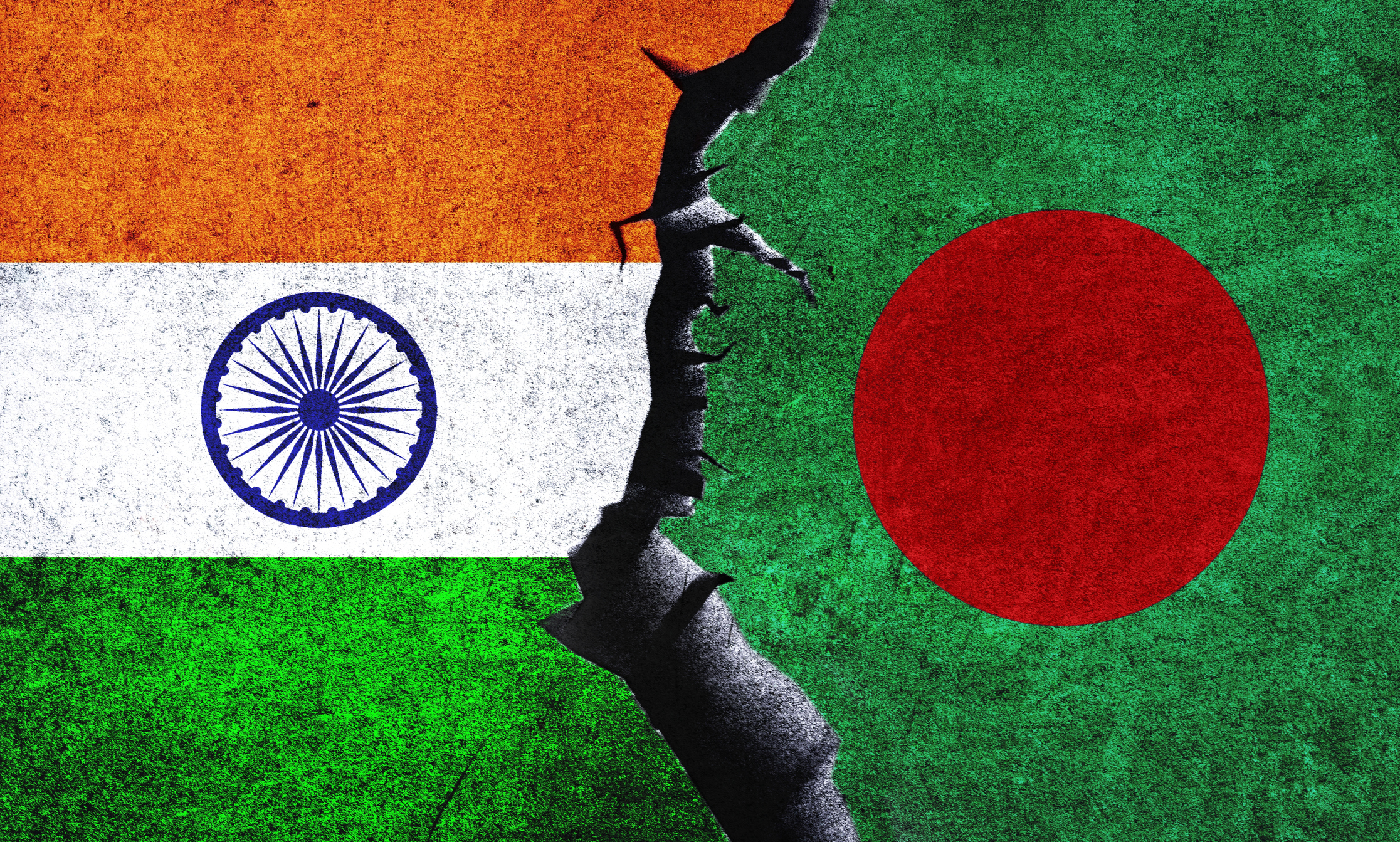
India’s growing interference in the domestic affairs of its neighbors has reached a troubling phase, marked by its strategic use of religious nationalism as a tool to destabilize the region. This phenomenon is glaringly evident in the recent unrest in Bangladesh, triggered by the arrest of Hindu monk Chinmoy Krishna Das on charges of sedition. The protests that followed, characterized by violent clashes and the destruction of property, reveal an unsettling pattern. While India positions itself as a defender of minority rights in Bangladesh, its actions suggest an ulterior motive: undermining Bangladesh’s stability to advance its geopolitical interests.
India’s covert involvement in Bangladesh’s internal matters has long been a contentious issue, but the events surrounding Chinmoy Krishna Das have brought these actions into the spotlight. Groups like ISKCON and other Hindu nationalist organizations have extended their influence into Bangladesh, often with implicit or explicit support from Indian actors. These groups claim to champion the rights of Hindus in Bangladesh but, in reality, serve as tools for India to exert pressure on its smaller neighbor. The timing of the unrest is particularly telling. It coincides with significant political transitions in Bangladesh, suggesting a calculated effort to exploit vulnerabilities. India’s use of religious identity as a wedge issue threatens to undermine decades of efforts by Bangladesh to foster a secular, inclusive society.
Bangladesh’s Approach
Bangladesh has consistently demonstrated its commitment to secular governance, striving to protect the rights of all citizens regardless of their religious affiliation. While challenges persist, the government’s policies emphasize inclusivity and coexistence. In stark contrast, India’s domestic landscape is marked by the systematic marginalization of minorities. The Citizenship Amendment Act (CAA) and the rising instances of communal violence against Muslims, Christians, and Dalits highlight a state apparatus that is increasingly complicit in deepening sectarian divides. India’s portrayal as a protector of Hindus abroad rings hollow when juxtaposed against its treatment of minorities at home. The inconsistency reveals a duplicitous strategy: using the rhetoric of minority protection as a smokescreen to further geopolitical ambitions.
Manufactured Protests: A Political Tool
The protests in Bangladesh following Chinmoy Krishna Das’s arrest have been framed as an organic movement for justice. However, evidence points to a more sinister reality. These demonstrations are increasingly being orchestrated by external forces to destabilize the country. By amplifying sectarian tensions, India aims to create a narrative that serves its strategic objectives while diverting attention from its own internal challenges. This tactic is not new. India has historically used similar methods to assert influence in the region, from supporting insurgencies to manipulating political factions. The use of religious nationalism as a tool of foreign policy marks a dangerous escalation in its approach to regional politics.
India’s Broader Ideological Drive
The events in Bangladesh are part of a larger pattern of India’s ideological export of Hindu nationalism. Domestically, this agenda has marginalized millions and fostered a climate of intolerance. Internationally, it seeks to extend India’s influence by sowing discord in neighboring nations. The rise of groups like ISKCON in Bangladesh is not incidental. It reflects a deliberate strategy to use religious identity as a lever to achieve political ends. Such interference not only threatens the social fabric of Bangladesh but also undermines the principles of sovereignty and non-interference that are foundational to regional stability.
Regional Implications
India’s actions in Bangladesh have far-reaching implications for South Asia. By exporting its domestic ideological battles, India risks destabilizing a region already fraught with tensions. The potential fallout includes heightened mistrust among neighbors, reduced regional cooperation, and an environment conducive to extremism. For Bangladesh, the challenge is twofold: addressing the immediate threat posed by these protests while safeguarding its secular identity in the face of external pressures. The international community must recognize the stakes and support Bangladesh in resisting such interference.
India’s interference in Bangladesh under the guise of protecting minority rights exposes a troubling hypocrisy. While claiming to champion Hindu rights abroad, India continues to marginalize its own minorities. This duality not only undermines its credibility but also threatens regional stability. As Bangladesh navigates this challenge, it must remain vigilant against external manipulation and steadfast in its commitment to inclusivity. The international community, too, has a role to play in holding India accountable and supporting efforts to preserve peace in South Asia.

